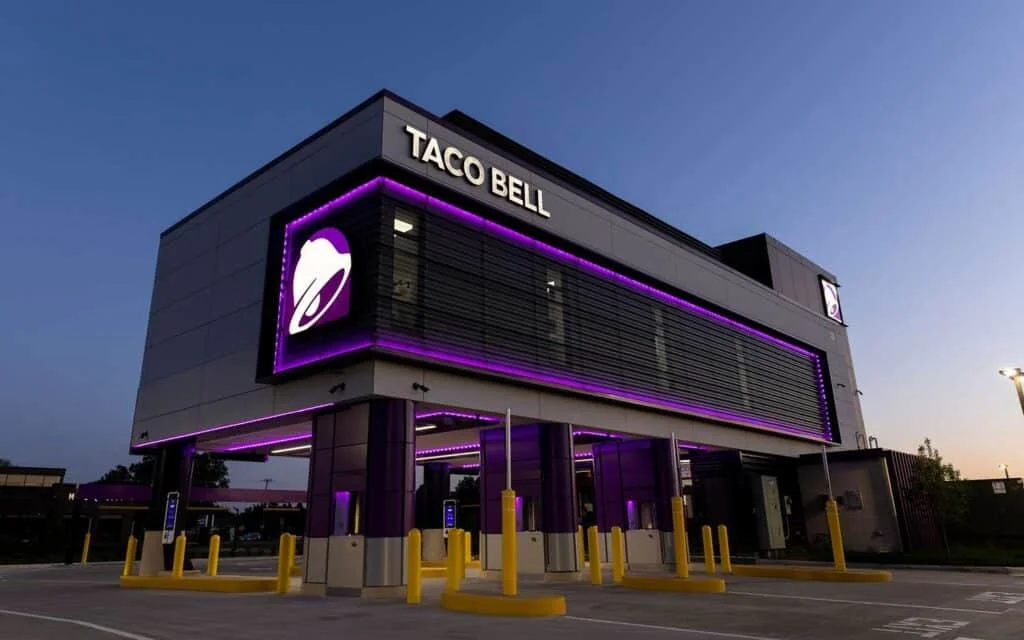Taco Bell Dubai: Why It Never Worked is a story of hype, hope, and an unceremonious goodbye. The American Tex-Mex chain launched in the UAE in 2008 with its flagship store in Dubai Mall, a location that seemed destined to make it a hit. But just four years later, it vanished entirely from the city’s fast-food landscape. The question is, why?
A Big Arrival in the City of Gold
Dubai Mall was a strategic starting point. A megamall that epitomised everything bold and international about Dubai, it drew tourists and residents alike. Taco Bell’s arrival generated immediate buzz, with curious customers eager to try something new. In a city packed with international chains—many American—Taco Bell hoped to replicate the success of its sister brands like KFC and Pizza Hut.
Yet from day one, things didn’t quite click. Despite being part of Yum! Brands—the same conglomerate behind KFC and Pizza Hut—Taco Bell Dubai lacked the same name recognition globally. It was known in the US but less so elsewhere, including the UAE. The fanfare faded fast.
The Halal Menu That Didn’t Hit the Mark
Taco Bell’s UAE menu was halal, fully adapted to Islamic dietary laws. Beef and chicken were locally sourced and certified, and pork products were removed altogether. Still, something felt off. The flavors, textures, and style remained very Americanised—processed cheeses, mild spices, and little accommodation for the Emirati palate.
Dubai is a city where shawarma, kebabs, biryani, and rich Levantine dishes dominate. Taco Bell’s burritos and tacos, with their soft shells and melted cheese, didn’t excite the local food culture in the same way. It seemed that despite the local adaptation, Taco Bell in Dubai missed the mark in flavour excitement. The concept felt unfamiliar. The taste, underwhelming. And when people crave fast food in Dubai, they reach for fried chicken, burgers, or pizza before looking toward Tex-Mex.
A Cultural Misstep in Dining Experience
In the UAE, dining is a social affair. People go out to sit, share, and spend time together. Taco Bell’s service model was fast and transactional. Its outlets looked more like airport food counters than places for family meals. The décor was minimal. Seating, limited. The concept of grab-and-go didn’t align with the local culture.
This was perhaps the biggest disconnect. Brands like KFC adapted, offering larger seating areas, delivery options, and Arabic marketing campaigns. Taco Bell tried to stay true to its quirky American identity, which didn’t perfectly resonate in Dubai. Its brand identity remained rooted in American youth culture—quirky, loud, and irreverent. But that identity didn’t resonate in Dubai, where brands are expected to be a little more refined and family-friendly.
Too Late to the Global Table
Taco Bell’s global expansion lagged behind its competitors. While KFC and McDonald’s were saturating global markets from the 1990s onwards, Taco Bell only began international growth in the 2000s. This late entry meant fewer people abroad had even heard of it, much less had nostalgic ties to it.
By the time Taco Bell reached Dubai in 2008, the market was already crowded. Five Guys, Shake Shack, and other international chains were vying for dominance. Taco Bell didn’t offer anything that felt new or unique. Its presence in Dubai, while intriguing, didn’t hold up against more established names. And to locals, it wasn’t a household name. The curiosity faded quickly.
Marketing That Missed the Mark
Taco Bell didn’t invest heavily in marketing its Dubai presence. There were no major ad campaigns, no influencer partnerships, and no strong Arabic-language messaging. The brand assumed that name recognition would be enough.
In contrast, other American chains in the UAE aggressively localised their approach. McDonald’s launched Ramadan campaigns. KFC created regional menu items. Taco Bell simply opened its doors, left its mark in Dubai Mall, and waited.
That strategy failed.
Success in Kuwait—A Glimmer of Hope
Interestingly, Taco Bell has had more success in Kuwait. There, the brand adapted more thoughtfully to local tastes. The menu included spicier options, and the atmosphere was warmer, more in tune with Middle Eastern dining expectations. The lesson? Cultural alignment matters.
Kuwait’s success suggests that Taco Bell isn’t inherently unfit for the region—it just needs a better strategy. The differences in Taco Bell’s approach between Kuwait and Dubai show the importance of understanding local tastes.
What Dubai Teaches Global Brands
Dubai is not an easy market, but it is a lucrative one for those who understand it. The city is global but not generic. International brands must offer local authenticity, from flavors to design to service.
Taco Bell’s Dubai misadventure is a case study in what happens when a brand expands without adapting. It’s not enough to be halal. It’s not enough to have a famous name. You have to truly speak the language—culturally, gastronomically, and visually.
As of 2025, there are whispers of Taco Bell exploring re-entry into the UAE market. Whether that’s wise depends on whether they’ve learned from past mistakes. This time, Taco Bell’s strategy for Dubai will need to offer more than tacos—they’ll need to offer understanding.
It failed to connect with local tastes, dining culture, and expectations, despite halal certification.
Yes, all meat served at Taco Bell Dubai was halal-certified.
Yes, Taco Bell continues to operate in Kuwait, where it had more cultural alignment.
There are no official announcements, but the brand could consider returning with better localisation strategies.
